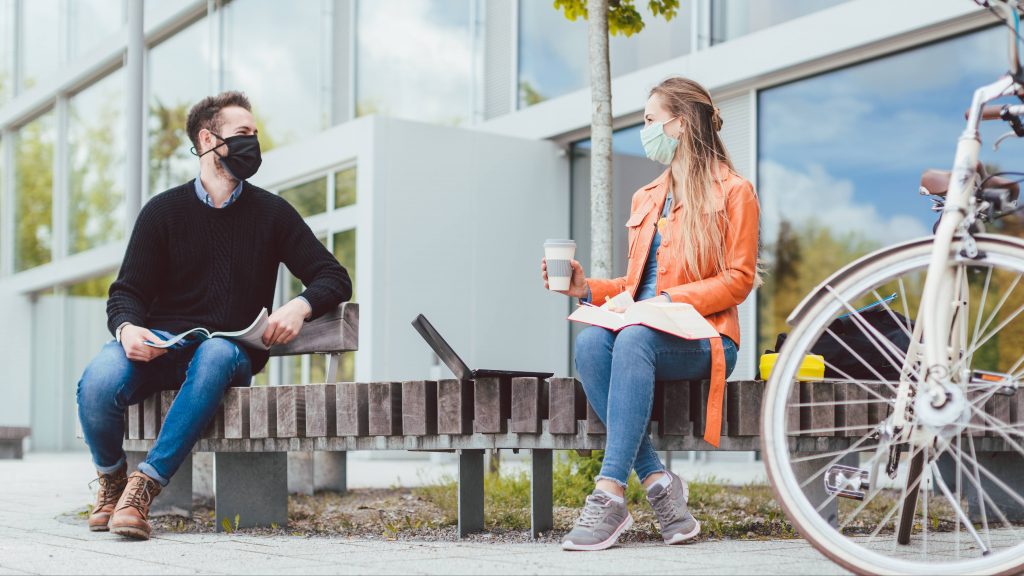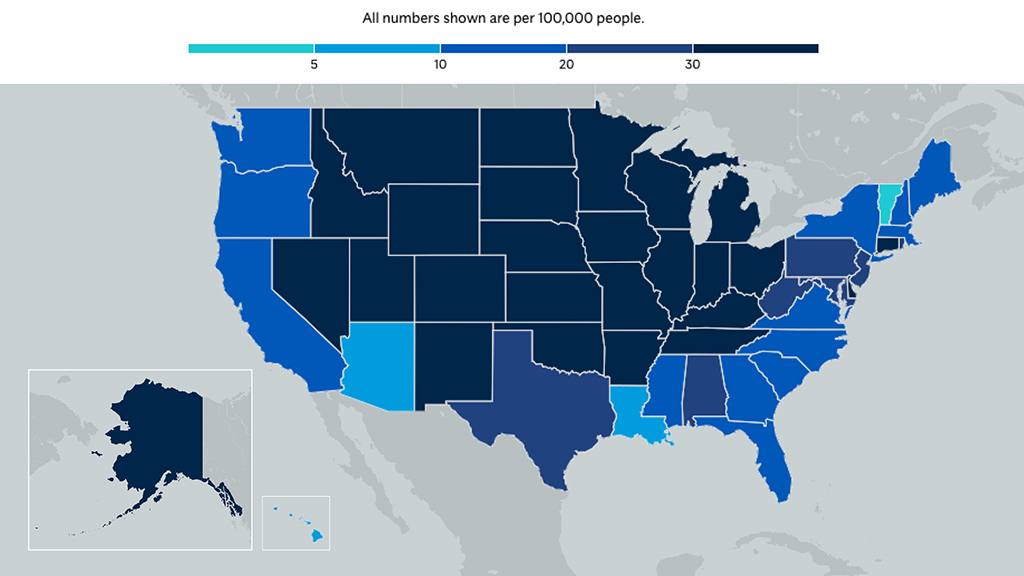
What you do and how you comply — or don't comply — with COVID-19 pandemic guidelines and recommendations makes a difference in your local community.
Mayo Clinic experts also are stressing that the temporary sacrifices community members are making — like not traveling over Thanksgiving, as recommended by the Centers for Disease Control and Prevention — can help gain control of the COVID-19 surge that is blanketing the U.S.
"There are now so many cases in the U.S. that for all practical purposes, thorough contact tracing is no longer possible. The cat is out of the bag."
— Dr. Gregory Poland
Community spread is the spread of the SARS-CoV-2 virus, the virus that causes COVID-19, outside of a hospital setting. Dr. Gregory Poland, an infectious diseases expert and head of Mayo Clinic's Vaccine Research Group, says a distinction needs to be made between the outside community and the hospital community. Hospitals like Mayo Clinic have health equipment mandates and protocols to keep patients and staff safe. And he emphasizes that people are primarily getting infected by small group meetings, not large assemblies.
"This is small family gatherings, small friend groups, birthday parties, dinner parties, where you're around family and friends that you know, that you trust and you don't think of them as infected," says Dr. Poland. "And they don't know they're infected because about 40% of this spread is by people who are asymptomatic, who, by definition, don't have symptoms and yet can spread it."
____________________________
Reduce the spread of COVID-19 in your communities. Here are reminders of important safety steps first introduced in the spring:
- Wear a mask in public to protect yourself and others.
- Keep your physical distance — at least 6 feet or about two arm lengths apart from other people.
- Avoid any in-person gatherings.
- Wash your hands often with soap and water.
- Use hand sanitizer, with at least 60% alcohol, if you don't have soap and water.
- Wipe down high-touch surfaces.
- Don't shout or take part in behavior that lets virus droplets travel further.
- Stay home if you do not feel well.
- Self-isolate if you've been around someone who is sick or tested positive for COVID-19.
- Get tested if you have COVID-19 symptoms. Call your local health care provider to schedule a test.
____________________________
Dr. Poland explains the nature of small gatherings. "You're sitting across the table from one another, having discussion, and sometimes alcohol is involved," says Dr. Poland. "Then people start speaking louder, and that's a transmitter."
He says the country is facing COVID-19 fatigue, and as social beings, it's been very tough for some people to adhere to temporary restrictions. "And unfortunately, we're paying a terrible price for it," says Dr. Poland.
"It wasn't too long ago we were looking at hot spots but it's everywhere, now," adds Dr. Poland. "You know, just since Election Day, 1 in 400 Americans has gotten infected with this virus. So it's important to look at community transmission."
Watch: Dr. Poland discusses COVID-19 community spread.
Journalists: Video sound bites with Dr. Poland are in the downloads at the end of this post. Please courtesy "Gregory Poland, M.D. / Infectious Diseases / Mayo Clinic."
Dr. Poland says the U.S. needs a thorough, well-based national testing strategy for people who do have symptoms and that contact tracing has become another concern as the country deals with the COVID-19 surge.
"One issue to focus on is contact tracing, which plays into community transmission," says Dr. Poland. "There are now so many cases in the U.S. that for all practical purposes, thorough contact tracing is no longer possible. The cat is out of the bag. We are in some ways past that because we just don't have the number of people to do it when you're talking about millions being infected."
"We need layered protections and certain kinds of soft lockdowns in high transmissibility settings, such as bars, restaurants, gyms and universities. If we can convince the public, ideally without having to make it mandatory, it will make a difference."
"And if we don't get a hold of this virus, then we don't get to decide. The virus decides," Dr. Poland adds. "And the true wisdom lies in being smarter than the virus."
Learn more about: Tracking and trending COVID-19

Information in this post was accurate at the time of its posting. Due to the fluid nature of the COVID-19 pandemic, scientific understanding, along with guidelines and recommendations, may have changed since the original publication date.
For the safety of its patients, staff and visitors, Mayo Clinic has strict masking policies in place. Anyone shown without a mask was recorded prior to COVID-19 or recorded in an area not designated for patient care, where social distancing and other safety protocols were followed.
For more information and all your COVID-19 coverage, go to the Mayo Clinic News Network and mayoclinic.org.







